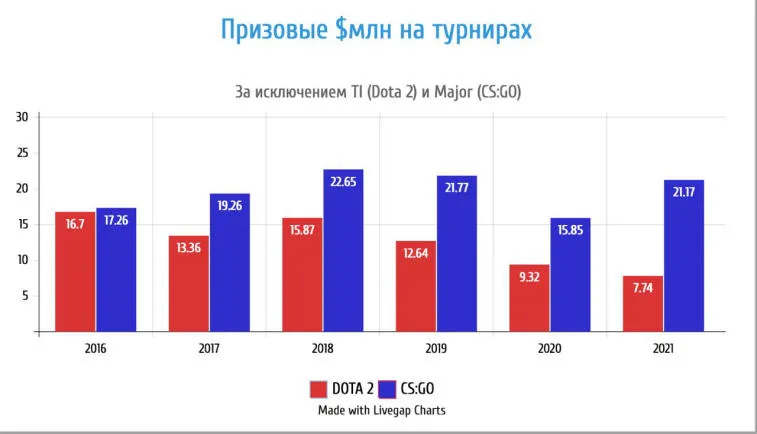esportsmen in place
In his blog, Magician talked about the nuances of an esports career and compared esportsmen from the Counter-Stirke: Global Offensive and Dota2 disciplines.
How did the Valve system work with the division of teams into divisions, has it become easier for players to earn money?
Valve's idea was that when creating leagues, they distributed the prize money to both divisions in order to support the rest of the teams. In general, the idea is good, but in fact little has changed. Compared to CS:GO, there are many online tournaments where you can win money all the time. Dota 2 doesn't have that option. In confirmation that the Valve system turned out to be worse in practice than in the ideas, you can listen to the players who are inside this system. From the team's apport Ivy said that it's impossible to live on the money from the prize money of the second division.
Has it become easier to get into the pro scene compared to the times when esports was not yet popular?
In fact, before there was even less prize money - they played for a case of beer, or $500 per team. Now the number of tournaments and prize money has increased, and the number of participants has increased by law. The more audience - the more sponsors and money, everything is logical. But to get to prof. the stage is not easier, although there are many possibilities. They give those who are talented to get to the TOP level, and make sure that the teams are seen. No more.
What has changed in the esports industry over the years?
Esports has become more popular, but there are fewer opportunities within Europe. For example, let's take sports scholarships in the USA for comparison - you go in for sports and if you do well, you go to university, get an education. No kidding, the salaries of coaches for varsity sports teams range from $300,000 to $2 million a year. In the case of esports, you spend 5-6 years to reach the seven-pro level, get into the second division of DotA, where you get 10 thousand per team for 2-3 months of playing. At best, you get contracts with a salary of $1-2 thousand per month. As a result, when playing Dota 2 at a tournament from Valve, you get only a couple of thousand dollars, this is the path of an esportsman that lasts 3-5 years. Moreover, if you do not achieve anything, at 30 years old, it becomes a question of what to do next if all the time is spent on games.
So is it still worth becoming an esportsman, or is it not?
The answer is yes and no.Many want to become players, commentators and analysts. Not everyone will. If you love esports, the solution is simple - get an education and stay in the market. I had such a story - understanding that I would not become a player, I received a marketing education in Austria and the USA and thus remained working in eSports, doing what I love (which is important) and making money. Yes, there is a chance that you can become a cool player and earn millions. But at the right moment, you also need to turn on your head. This message also applies to parents of children who read me - if your child wants to become an esports player, this option is best suited.
How is the salary of professional CS:GO and Dota2 players lately?
For comparison, why are professional Dota2 players getting lower salaries? A good indicator is the amount of prize money. For comparison, I took CS:GO and Dota 2 without majors and TI.

Here is what the ex-CEO of the Hellraisers organization told, he answered questions that are of interest to young players who are just about to get into eSports.
Comments